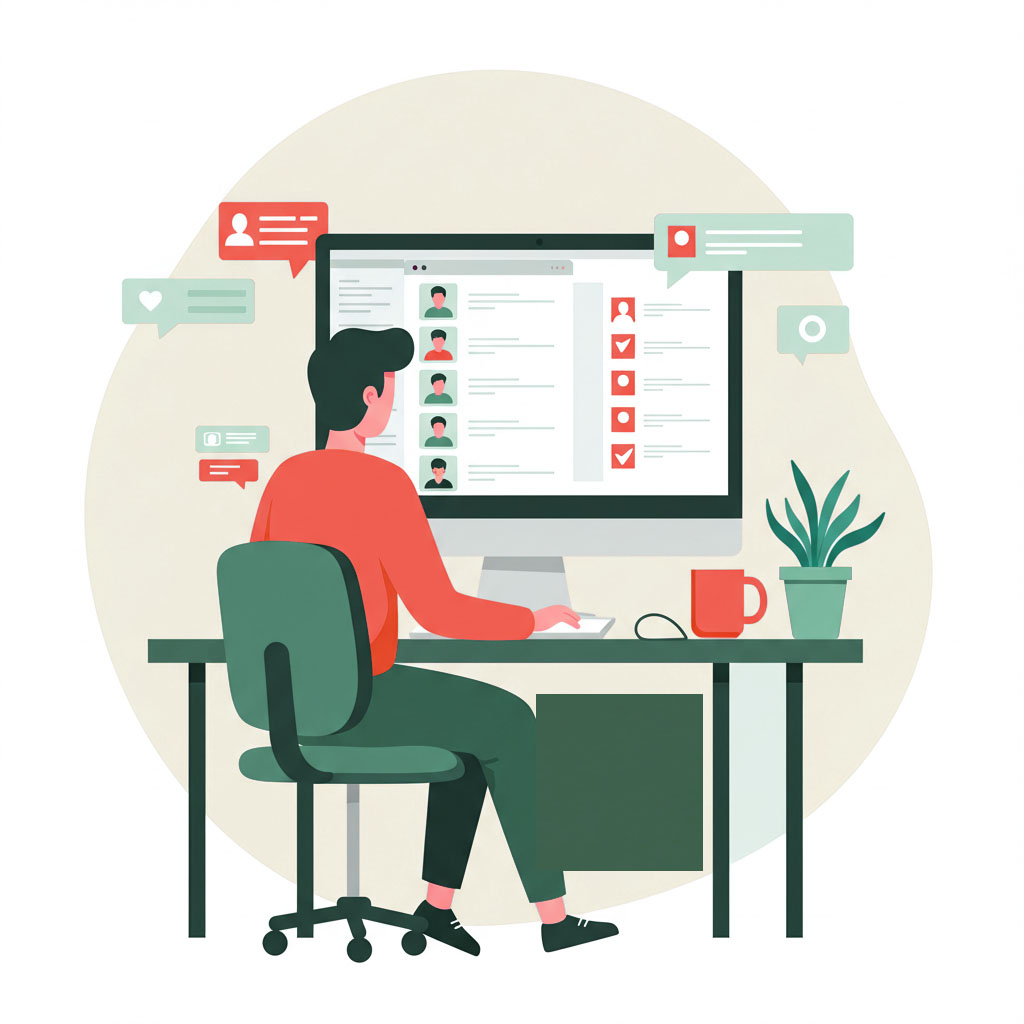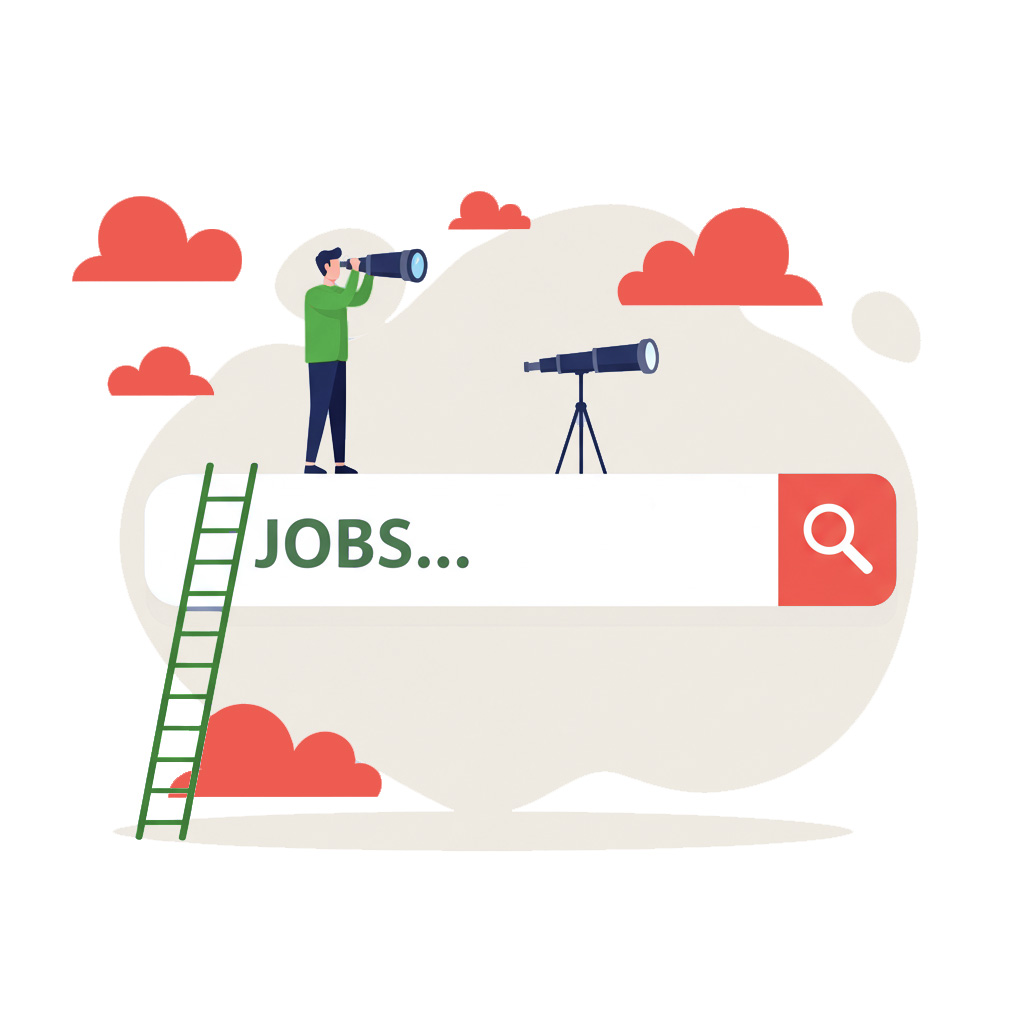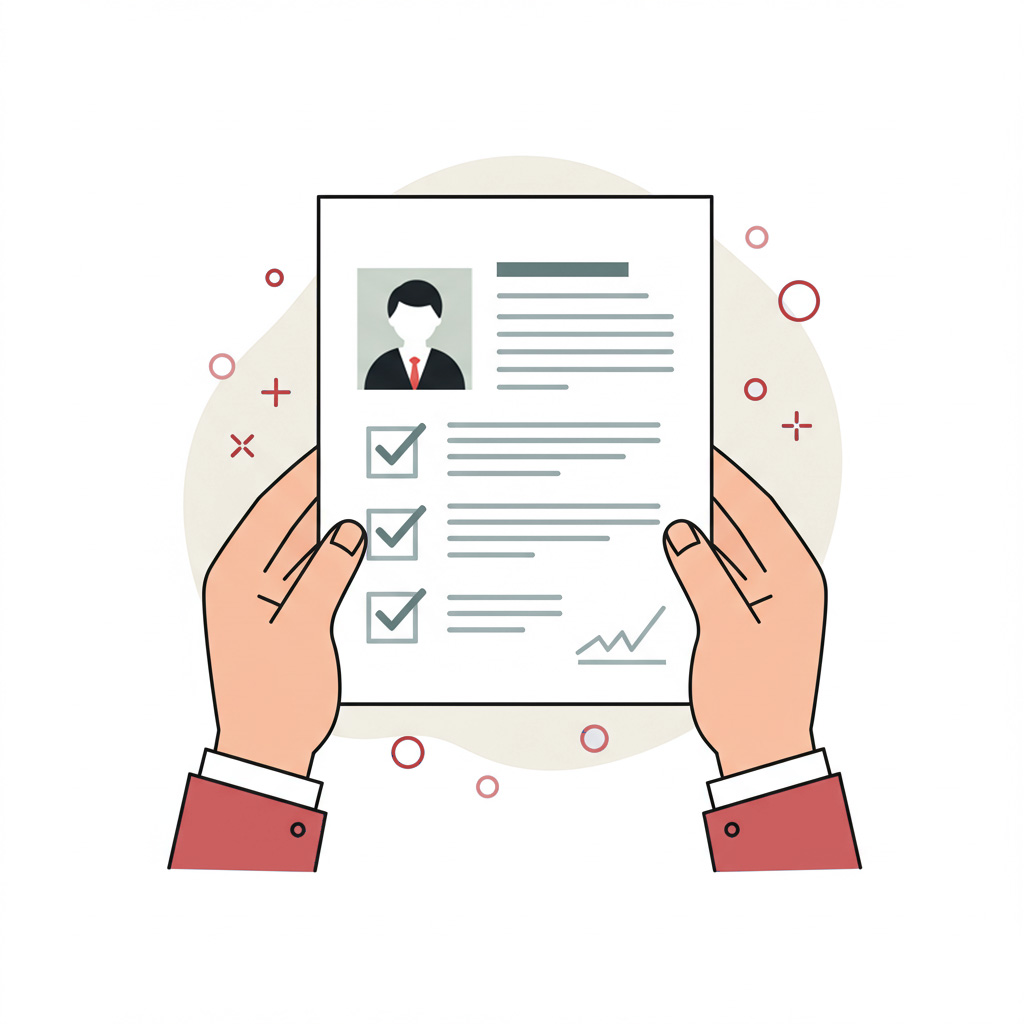Some industries are booming - like Cannabis, AI, Machine Learning, and Biotech, among others. Others are transforming - Healthcare, Digital Marketing, or Media. And some are or will experience a significant decline or major disruptions - these include Oil and Gas, Traditional Retail, Manufacturing, Basic Administrative Support, and Telemarketing. Employers across the board are still struggling to fill specialized roles in tech, healthcare, sustainability, and beyond. At the same time, the job market gets flooded with content writers, junior coders, bank tellers, and call center representatives out of work because of AI.
Landing a job isn't just about checking boxes anymore. Companies are looking for people who can adapt, learn quickly, and align with their values. Possessing transferable skills isn't just another nice-sounding addition to your summary. In today's job market, it's a must that will help you stand out in a sea of other candidates.
The days of firing off dozens of identical applications and hoping for the best are over. Now, it's about being intentional - knowing what you want, where you add value, and how to communicate that clearly. In the world of hyper-automation, staying focused and knowing what you want is the key.
The right job isn’t just out there - it’s waiting for someone bold, focused, and prepared to claim it. These strategies will help you step into that role with confidence.
Whether you're changing careers, aiming for a remote position, or looking to step up into something more aligned with your personal goals, it's all possible - you just need the right tools.
Define Your Career Goal
How long does it take to find a job? Not long - if you approach it correctly. The first step toward finding a new opportunity is to define your career goal. What do you want next? Like, truly want. Is it to become an expert in your field? Or, maybe, to step into a leadership role? Do you want to rise the corporate ladder or go into entrepreneurship? Are you switching industries, looking to work from home and spend more time with family, or relocating to a different state?
Having a clear goal doesn’t just keep you focused - it shapes every part of your job search strategy. It helps you build a stronger resume, target the right job ads, and come across as passionate and convincing during interviews.
Take time to assess:
- Your strengths and passions: What work energizes you, and what are you naturally good at?
- Your preferred work style: Do you thrive remotely, in hybrid setups, or in a traditional office?
- The market trends: Are your skills future-proof? Can you tie them to growing fields like AI, sustainability, or tech innovation?
- Your financial needs: What salary and benefits are necessary for your current life stage?
Think of your career goal as your professional GPS - clearly identifying where you are, where you want to go, and which roads will get you there fastest. Without it, even the best job search tactics can lead you in circles.
Get Serious About Job Hunting

Step 1 - stop daydreaming. If you want to find a job, you can’t go into the job-hunting process half-heartedly - you need to make it your mission and approach the job search like you would an actual job. Actually, for the next few months, it will become your full-time job. This means you have to build a schedule and stick to it.
Finding a new job isn’t about luck. Actually, luck has very little to do with it. Looking for a job nowadays requires consistency and focus. One of the biggest mistakes job seekers make is treating the search like a passive task instead of a project that requires active management.
Set aside dedicated time each day to scan job boards, learn more about your target companies, update your LinkedIn profile, and tailor your application documents (i.e., resume and cover letter).
As you build your weekly schedule, pay attention to how you’re spending your time. Some tasks, like endlessly scrolling job boards without applying, can eat up hours without producing results. Other activities, like networking or customizing your resume for a specific role, tend to have a much higher return. Yes, some of these might require you to step out of your comfort zone, but 2025 is nothing but an "un-comfort" zone for most job seekers.
Here’s how to stay productive:
- Track your efforts. Use a simple spreadsheet or a tech-driven job search tool like Huntr or TealHQ to log where you’re applying and what results you’re seeing.
- Identify high-impact activities. Focus more time on tasks that move you forward — such as direct networking, tailoring resumes, or reaching out to recruiters.
- Limit passive tasks. Give yourself a set time to browse listings, then shift to more active work like submitting ATS-optimized applications.
Smart time management can dramatically shorten your job search - and make it a lot less stressful.
Stay Hyper-Focused

In 2025, the job market is more competitive than it has been in recent years. While opportunities are plentiful in growing sectors, there's also a larger pool of highly qualified candidates — especially for remote job search, tech-driven positions, and leadership opportunities. This means job seekers can't afford to rely on mass applications or hope that employers will come chasing them. Strategy and precision matter more than ever.
If you're not sure exactly what you want, start by creating your own personal job description. Write down the kind of work you want to do, the team culture you thrive in, the skills you want to use and grow, and the values you want your future employer to share.
Then take it a step further: define your ideal employer. What size company fits you best? Are you looking for mission-driven organizations? Innovation-focused environments? Hybrid or remote flexibility? Can you afford to be picky about your future job, or do you need a position right now?
When you have a clear picture of what you want, you can job search with focus — not scattershot applications.
Think rifle, not shotgun.
Instead of applying to dozens of jobs and hoping something sticks, target fewer, high-quality opportunities where you're genuinely aligned with a tailored resume and cover letter. Aim to show the recruiter on the other side of the screen why you're a perfect match.
Not only will this save you time and energy, it will dramatically increase your odds of landing interviews — and, ultimately, offers that you're excited to accept. In today's market, intentional applications beat mass submissions every time.
Build Your Brand
A well-developed brand leaves a lasting impression that resonates with people. When branding is done right, you'll distance yourself from the crowd in a way that is meaningful to your intended audience, whether it's your social media connections or the recruiter of a Fortune 500 company.
Creating an effective professional brand takes time, but it must be done if you want to stop asking yourself how to find a job in 2025. Begin by having a brand vision, identifying your audience, and developing a persona. For instance, if your goal is to get noticed by recruiters and hiring managers, start by cleaning up your online presence (which they'll be sure to check), optimizing your LinkedIn profile, networking with industry professionals, fine-tuning your resume, and staying active in relevant communities.
It's important to remember that personal branding for job seekers often sounds more intimidating than it really is. No one expects you to become a TikTok star or write a bestselling book. In reality, a healthy professional brand in 2025 simply means maintaining a clean and authentic social media presence, occasionally sharing insights or industry news, and consistently reflecting your core values. Show you're engaged, knowledgeable, and principled — and that's more than enough to stand out naturally.
Simple Ways to Strengthen Your Brand:
- Share an article you genuinely found insightful, and add a short comment explaining why it resonated with you.
- Post your perspective on an industry trend — even a few thoughtful sentences show you're paying attention.
- Comment, but meaningfully, on posts from thought leaders or companies you admire. Smart engagement matters as much as posting.
- Update your LinkedIn headline to reflect your current skills, career goal, or passion — it's often the first thing recruiters see.
- Join a professional group or community (on LinkedIn, Slack, or elsewhere) and participate in discussions when you can.
Building your professional brand doesn't mean reinventing yourself or spending hours online. It's about showing up authentically, adding value in small ways, and letting your experience and voice shine through.
Prepare for an Interview
Landing an interview is a huge milestone. If this is a step you are at in your job search - congrats!
Regardless of whether the company conducts job interviews in person or online, you must prepare so that you will appear confident and impactful in your interview. Most of all, you need to convey that you are a good fit not only for the vacant position, but the company as well. Here are some of the more common interview questions to prepare for:
- Can you tell me more about yourself?
- How would you describe your work style/ethics/ philosophy?
- What motivates you?
- How do you handle feedback?
- What would you say are your strongest/weakest characteristics?
Preparation is where real success happens. In 2025, interviewing means being ready for both traditional conversations and new formats - think virtual screenings, recorded interviews, and AI-driven assessments.
If you're preparing for a video interview, focus on the basics first:
- Lighting: sit facing natural light like a window, or use a simple ring light to avoid harsh shadows.
- Posture: sit up straight, look into the camera (not the screen), and keep your energy calm but engaged.
- Minimized distractions: choose a quiet space, silence your phone, and double-check your background. A neutral, uncluttered setting always works best. Ask your loved ones to allow you 30 minutes of quiet.
More companies are using AI interview tools - either to screen candidates or conduct first-round evaluations. Be prepared.
To get comfortable, practice with platforms like Google's free Interview Warmup. They are there not just to help you rehearse your answers - they'll also flag overused fillers, pacing issues, and highlight areas where you could come across as a stronger candidate.
Remember: the more you practice, the more natural you'll sound - whether you're talking to a recruiter, a hiring manager, or an AI bot.
Perfect Your Resume

When was the last time you updated your resume? If you haven’t changed anything in it since you last searched for a job, it’s time to do so. A polished and up-to-date resume is your best way to find a new job, so make sure to include your latest experiences, best accomplishments, training, and skills. Focus on making them as interesting to your target employers as you can. Again, review the job posting carefully, and check for keywords that applicant tracking systems will be looking for.
In a crowded job market, your resume is more than just a summary of your experience; it's your ticket to getting through the first big hurdle: applicant tracking systems (ATS). These tools scan resumes for keywords and formatting before a human ever sees your application. If your resume isn't optimized, it could get filtered out no matter how qualified you are.
In 2025, the first person reading your resume is probably a robot — make sure it loves what it sees.
Rely on these modern resume tips to make your resume stand out in 2025:
✅ Tailor every resume. One-size-fits-all resumes don't work anymore. Analyze the job description carefully and weave in relevant keywords naturally — especially job titles, key skills, and certifications.
✅ Use clean, modern formatting. Stick with standard fonts (like Arial, Calibri, or Helvetica), clear section headings, and avoid text boxes or graphics that ATS bots can't read.
✅ Focus on results. Instead of listing duties, highlight measurable achievements. Think numbers, percentages, growth metrics — anything that shows impact.
Before you send out your resume, run it through a free ATS checker. Tools like this can help you catch missing keywords, formatting errors, or readability issues that might cost you interviews.
Also, remember to update your LinkedIn alongside your resume. Many recruiters cross-check both before reaching out. In short: a strong, ATS-optimized resume isn't about flashy designs but about clear, targeted storytelling that instantly proves you're the right fit.
Use AI Tools (Strategically) in Your Job Search
AI can be a fantastic assistant during your job hunt, but it’s important to use it wisely. AI resume builders can help you overcome writer’s block and provide a great starting point, but overusing them can quickly backfire. Many employers and ATSs are becoming skilled at spotting cookie-cutter AI-built resumes that feel generic, robotic, or misaligned with the real requirements of the role.
The rise of fake job applications that are flooding recruiters is making companies deploy AI to fight AI.
If your resume sounds like it came straight from an AI builder without any personal touch, it might land at the bottom of the pile.
Here’s the smart approach if you absolutely must use AI:
- Use it for drafts and structure only. Treat it as a brainstorming tool, not a final product.
- Refine your materials for authenticity. Insert your real voice, highlight personal accomplishments, and tailor your resume to specific job posts.
- Cross-check with trusted sources. Compare your AI-assisted drafts with samples from the top trusted resume websites to make sure your document feels polished, natural, and competitive.
At the end of the day, AI can speed up the process, but your human insight, career story, and real achievements are what will get you hired.
Avoid Burnout During Your Search
If there's one piece of advice to take seriously during your job search, it's this: Protect your mental health first.
Searching for a job - especially when financial responsibilities and family depend on you - can feel grueling, isolating, and exhausting. When the whole world is on your shoulders, it's easy to slip into a cycle of stress and self-doubt.
Remember: Your mental well-being is your best job search tool.
If you burn out while job searching, everything suffers, including your confidence, interviews, and, ultimately, chances of job offers.
So, how does one protect mental health during a job search?
- Set a schedule. Treat job searching like a part-time job. Block out specific hours for applications, networking, and upskilling. Use tools like Motion or Sunsama to help organize your daily workload.
- Batch your applications. Instead of applying throughout the day, batch 3–5 well-targeted applications at a time. Then stop. Research from Harvard Business Review shows that batching reduces decision fatigue and improves performance.
- Prioritize active recovery. Take real breaks: short walks, meditation, journaling, or listening to a favorite podcast. Use apps like Calm and Headspace that offer a quick mental reset. Even 10 minutes of meditation a day can make a huge difference.
Lean on your support system. Stay connected with friends, mentors, and career groups. Isolation amplifies stress, while a healthy community buffers it.
Conclusion

Yes, finding a new job in 2025 isn’t easy. Each job post now receives hundreds, if not thousands, of applications, a hiring timeline is much longer, the threat of AI and automation is real, and financial pressures make the process scary and complicated.
But with the right mindset, strategy, and support, it’s entirely possible. More so, once you land a job - it will likely be more dynamic, exciting, and interesting than ever before. Something to look forward to, no?
The process always begins with clarity and intention: take care of your mental health, use technology wisely, and bring more to the table than a list of hard skills.
Trust the process and have faith in yourself. The right opportunity is out there - and with each step, you’re getting closer to it.
How to find a new job fast? Work with us
It bears repeating that your resume is your best tool when looking for a new job. Ensure that it is exactly what recruiters are looking for by having one of our certified resume writers develop it with you.
With Resumeble, you’ll be working directly with your assigned writer, and not a sales representative or AI bot. Whether you are looking for an executive role, federal employment, or growing in your current position, choose from one of four carefully curated packages and begin your journey toward finding the right job for you in 2025 and beyond.
